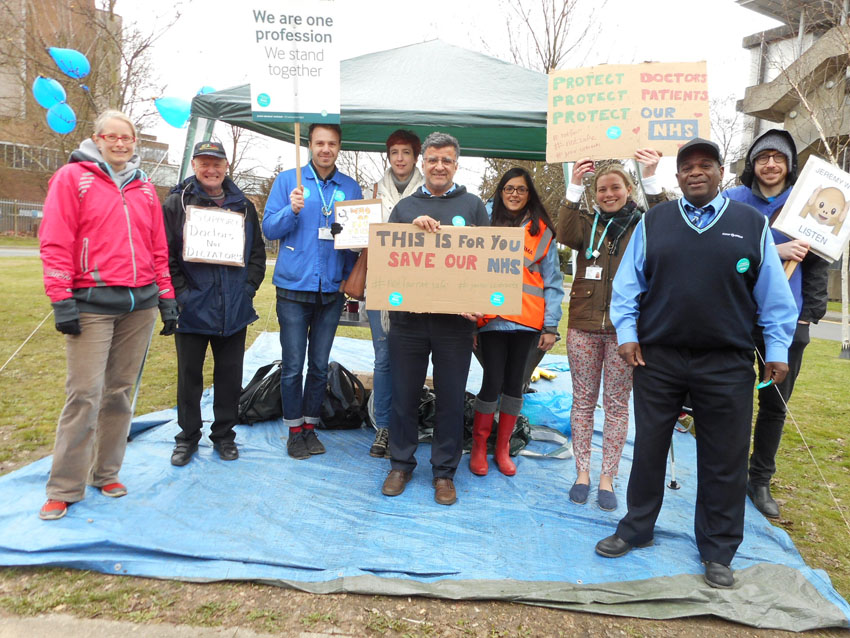TORY Health Secretary Steve Barclay’s refusal to join today’s meeting between doctors’ leaders and the Department of Health is ‘beyond belief when the stakes are so high,’ the British Medical Association said yesterday.
The doctors’ union said the meeting is the last chance for the BMA to consider any proposal from the government on pay restoration that could avert strikes being announced for March.
The BMA’s 98% strike vote was announced on Monday, in which more than 36,000 junior doctors in England voted to take strike action – which was over 75% of those eligible to vote – meaning this was the largest ever turnout for a ballot of doctors by the BMA and a record number of junior doctors voting for strike action.
The BMA said that it will proceed to call a 72-hour strike in mid-March.
Dr Rob Laurenson, co-Chair of the BMA Junior Doctors’ committee, said yesterday: ‘For a meeting of this significance to go ahead without the Minister in charge shows how little attention this government continues to afford to doctors and their patients.’
Dr Emma Runswick, BMA Deputy Council Chair, said: ‘In 2019 we agreed a multiyear deal. But with inflation, we are now facing really significant pay cuts so the two per cent that was awarded last year is in reality a ten per cent real terms pay cut – the equivalent to working a month for free this year in comparison with last year.
‘We don’t think that’s fair. It’s not fair for doctors, it’s not fair for patients.
‘The deal that we signed had an agreement within it that if there were significant changes in circumstances that the supposedly independent pay review body could recommend a higher uplift.
‘We’ve had since then a pandemic and massive inflation, neither of which are apparently significant enough circumstances for the government to change their mind.
‘We think that’s wrong. We think that you shouldn’t have both a pandemic and applause in the streets and then a massive real terms pay cut.’
She continued: ‘I’m confident that the public know exactly why we’re fighting this issue. They’ve supported the nurses, they’ve supported ambulance workers. They understand that our NHS is under extreme strain, that we’re losing staff to other professions or to abroad, particularly for doctors to Australia or New Zealand.
‘They know that this is a fight about us but also a fight about them and the care that we can give. Currently we don’t think that’s good enough, we think that you deserve better and I think that patients and the public will understand that as well.’
